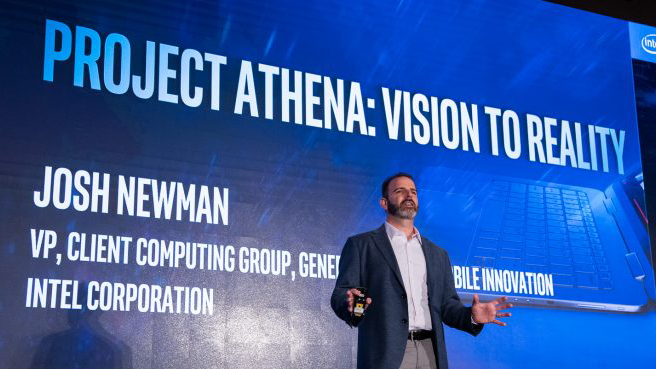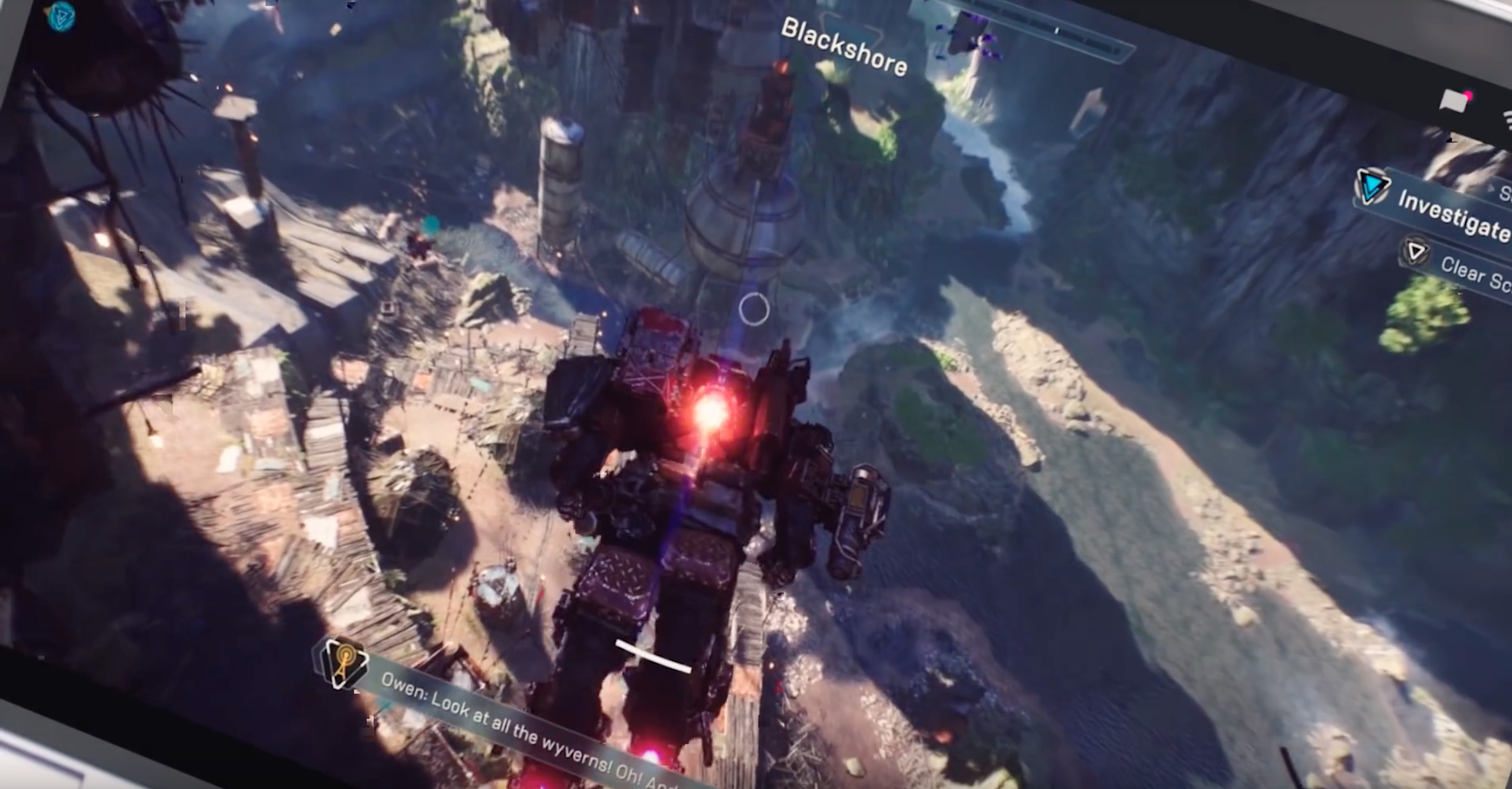Intel's 'Project Athena' vows to improve crappy laptop battery life
Its relationship to gaming, however, remains nebulous.

Two weeks after showcasing its 9th generation mobile Core processors for high performance notebooks, Intel has given us a taste of what to expect from its Project Athena design initiative, a concept that will hopefully have positive bearings on the best gaming laptops yet to come. The natural successor to its MacBook Air-inspired Ultrabook spec introduced in 2011, Project Athena is less about making notebooks thinner and more focused on improving battery life.
To qualify, hardware makers will have to prove that their laptops can sustain at least nine hours of consecutive use under real-world conditions. As it stands, many firms base their claims in ideal environments, where more demanding tasks such as video streaming, web browsing and—dare we say it?—gaming cease to exist. Intel hopes to change this approach with its newly detailed validation program, which puts laptops through the paces of simulated multi-tasking on a brightly lit screen.
Of course, Intel isn't leaving its partners in the dark about how to meet this lofty expectation. Rather, in the coming weeks, it's opening three Project Athena Open Labs locations to help test and certify devices. Just in time for Computex, the labs will be based in Taiwan, Shanghai and California. Seeing as the first batch is slated for next year, some Project Athena notebooks are going to house Intel's 10nm Ice Lake processors while others will use the company's Y- and U-series silicon.

One way these companies can address the issue of battery life is by abandoning the traditional power-hungry display which, Intel's own findings suggest, can eat up over 50 percent of a laptop's battery life. As an alternative, the company recommends its partners begin to adopt one-watt LPDT. Coincidentally, these are made by none other than Intel itself, in collaboration with Sharp. The idea is to get OEMs on board, too, once the screens are easier to implement.
In addition to offering a better battery life for your next laptop, Intel says Project Athena will bring a "new level of responsiveness" to its co-developed systems. According to intel, this means allowing users to stop and resume tasks without interruption. For example, if you're in the middle of editing a 4K video and you have to take a meeting, the laptop would pick up from where you left off as soon as you open its shell.
This is possible thanks to a new lock/wake solution centered around what it calls "touchless login." Existing technologies from third parties like Tobii and Mirametrix are already example of this. In Microsoft's ecosystem, Windows Hello is too. Given that the PC market is in a constant state of decline, according to some analysts, it makes sense for Intel to try and "disrupt" it, so to speak.
Project Athena was first shown at CES back in January. At the 0:58 mark of its initial sizzle reel, you could see someone playing Anthem on an ostensibly thin and light laptop, no charging cable in sight. The company has since clarified that Project Athena laptops are intended for "mobile go-getters," people who use their laptops everywhere they go, including coffee shops, bars, co-working spaces and convention center press lounges.
The biggest gaming news, reviews and hardware deals
Keep up to date with the most important stories and the best deals, as picked by the PC Gamer team.
I reached out to Intel for comment on Project Athena's role in the gaming laptop market, to no avail.


